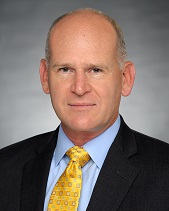Background
In September 2023, the CMS released the States Advancing All-Payer Health Equity Approaches and Development (AHEAD) model. At that time, we shared with you five key initial considerations. With the recent release of Version 1.0 of CMS’ Medicare Fee-for-Service (FFS) global budget methodology our team has put together some updated considerations for health systems in states considering participation:
1. Hospitals Should Monitor Whether Their State Applies for Cohorts 1 & 2
Applications for the first two cohorts are due by March 18, 2024. Hospitals interested in participating in the AHEAD model should be communicating with state agencies to:
- Determine if the state agency is planning to apply for participation at a state or sub-state level
- Help inform the state’s application process through collaboration on narratives and project plans, as well as drafting letters of support to strengthen the overall application
Although individual hospital participation is voluntary, the state will be required to recruit hospitals such that 10% of Medicare FFS Net Patient Revenue for the state or sub-state region is under a global budget in PY1 (30% by PY4). As a part of their participation, hospitals will be required to develop health equity plans to address health disparities and care outcomes.
Leadership should begin evaluating needs (resourcing, financial, IT, infrastructure etc.) and related risks to set themselves up for success as official participation agreements will be executed with CMS by October/November 2025 for states in the first cohort.
2. Hospitals Should Prepare a Global Budget Financial Model to Understand Impact on Transition to VBP
On February 15, 2024, CMS published its methodology for calculating the Medicare FFS hospital global budget. Hospitals will be paid via prospective, bi-weekly payments that are intended to cover the total cost of care (TCOC) for the attributed population of beneficiaries while improving quality and curbing growth in healthcare expenditures. The global budget baseline will be calculated using historical revenue and will be adjusted annually based on changes in market dynamics and performance.
Certain adjustments incentivize early participation and strong performance. For example, the Transformation Incentive Adjustment represents a 1% boost for hospitals participating in the first two Performance Years; it will be repaid if hospitals exit AHEAD before Performance Year 6. This adjustment is meant to support some of the data integration, analytics, care model, physician alignment and related capabilities building and optimization required for success in AHEAD. Examples of performance-based adjustments include a Health Equity Improvement Bonus (based on select measures) and an Effectiveness Adjustment (based on reduction in avoidable care).
Organizations interested in participating should consider the infrastructure that will need to be established and the capabilities needed to be successful. When evaluating participation, organizations should consider current state and gaps for the following areas:
- Data, interoperability, analytics and reporting
- Quality improvement
- Financial modeling
- Compliance and business operations
- Network and physician engagement
- Care coordination and management
- Patient experience and engagement
- Transactions and ventures
- Service line rationalization based on community need
- . Leadership governance and talent change management
COPE Health Solutions’ team of experts can help your organization position itself for success in the AHEAD model as well as other value-based care programs through health plans, CMS and state-based 1115 Waiver amendments. This includes the ability to financially model AHEAD Medicare FFS and Medicaid base revenue and scenario based assumptions for performance on and impacts of the various adjustments.
Contact info@copehealthsolutions.com or 213-259-0245 to learn how we can help your organization if it is considering on applying for the AHEAD program.


